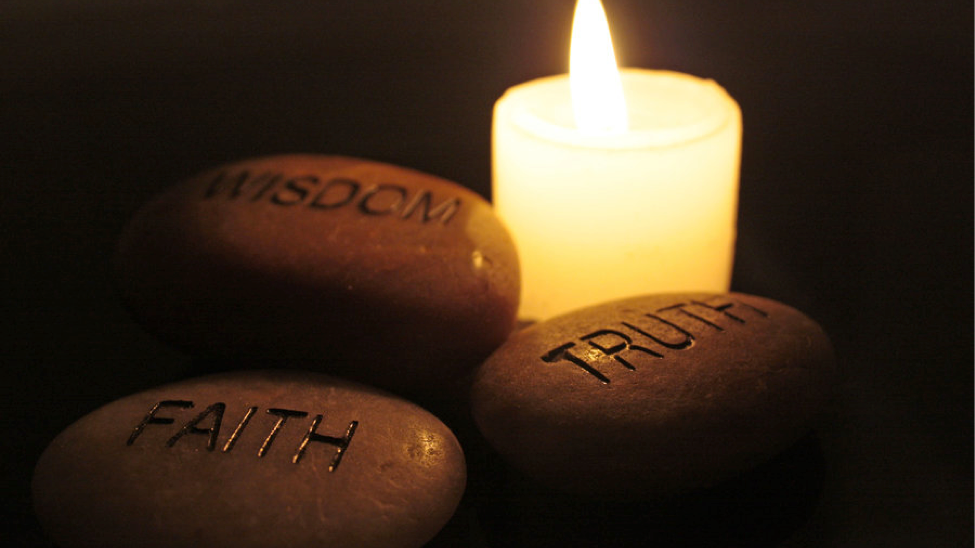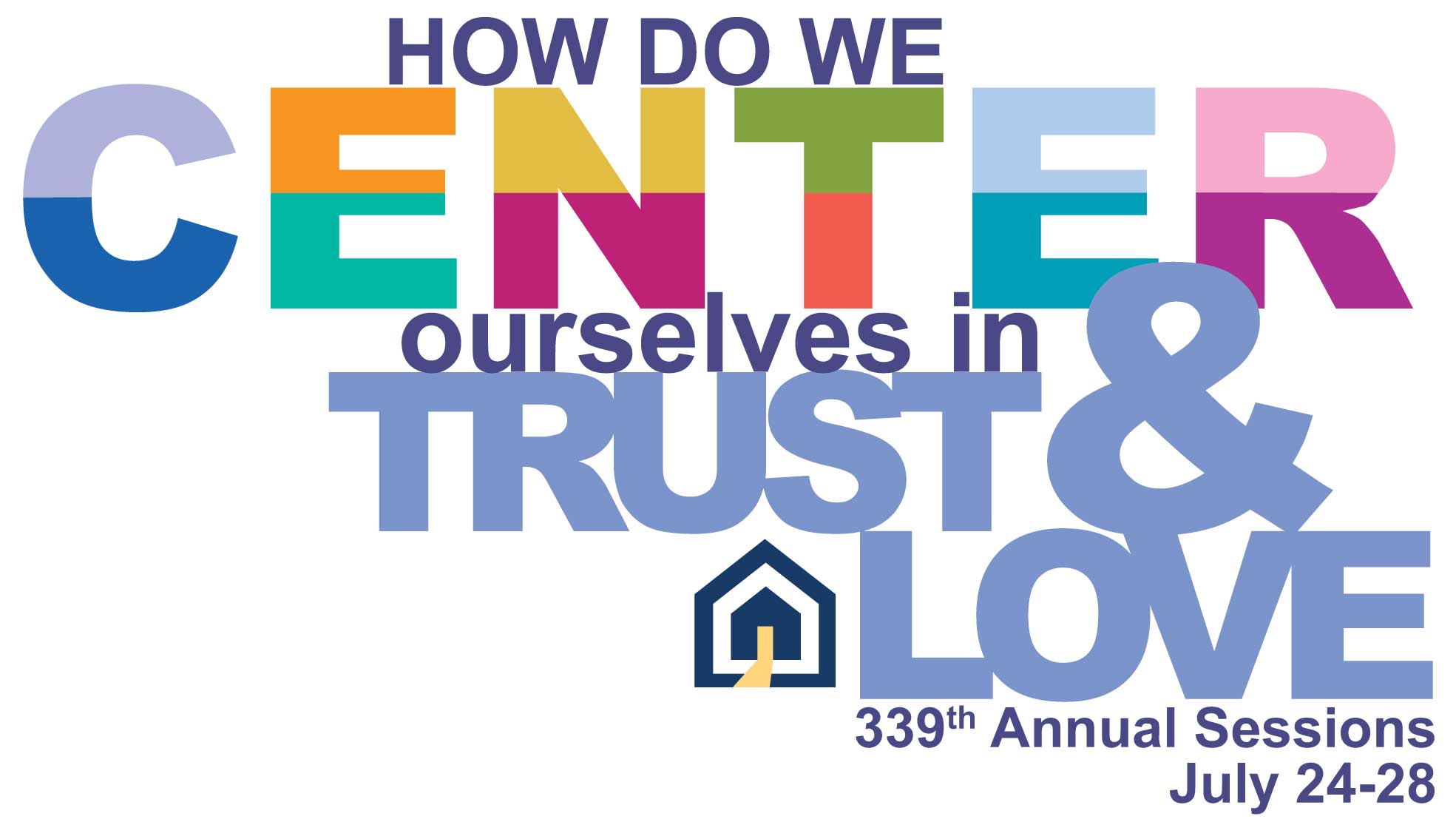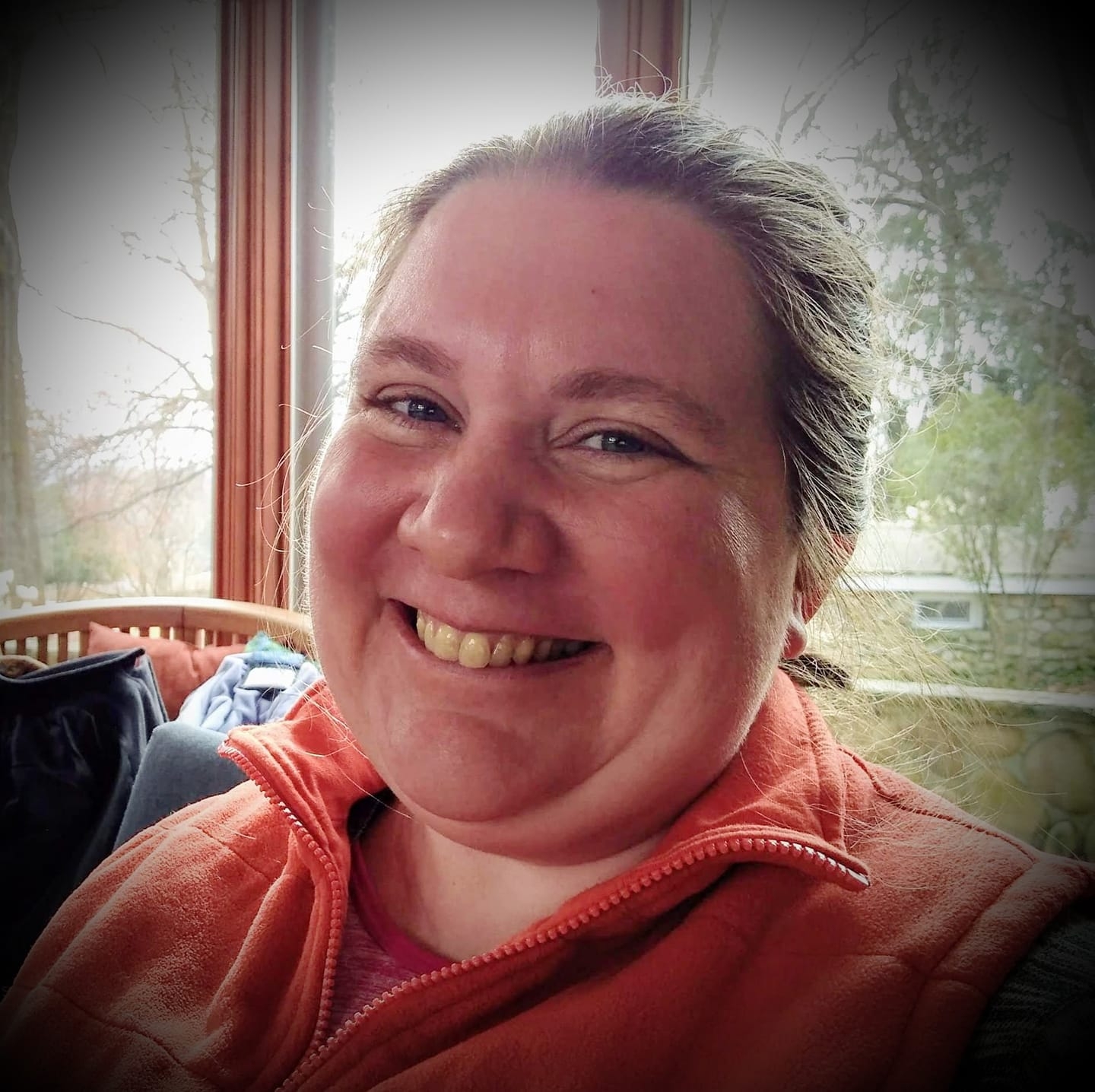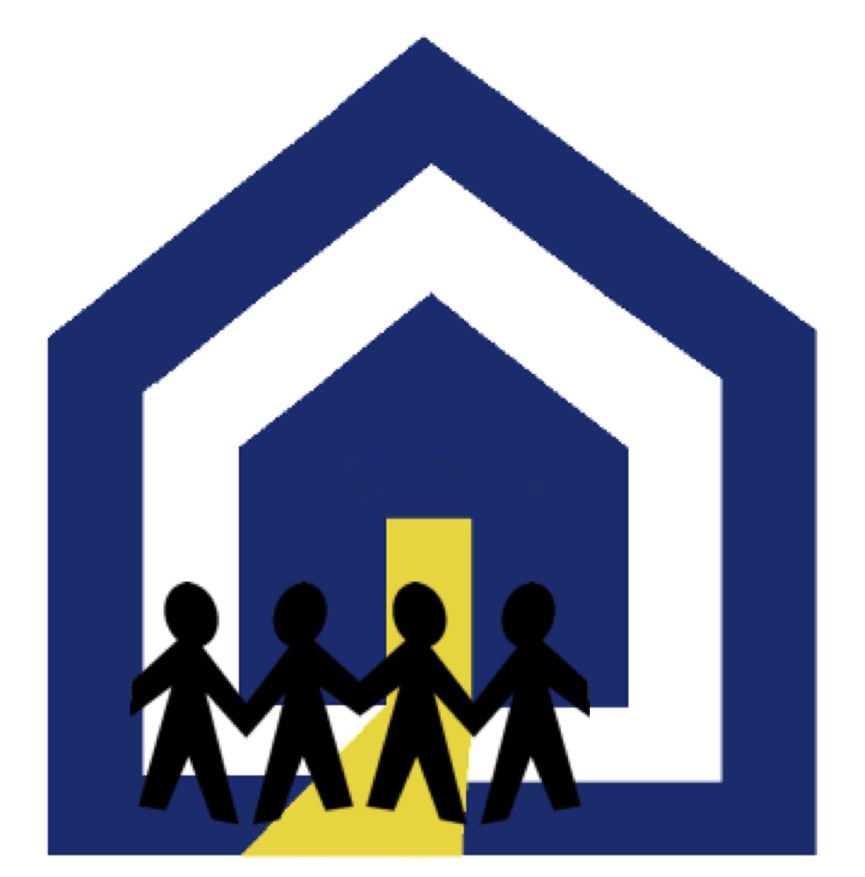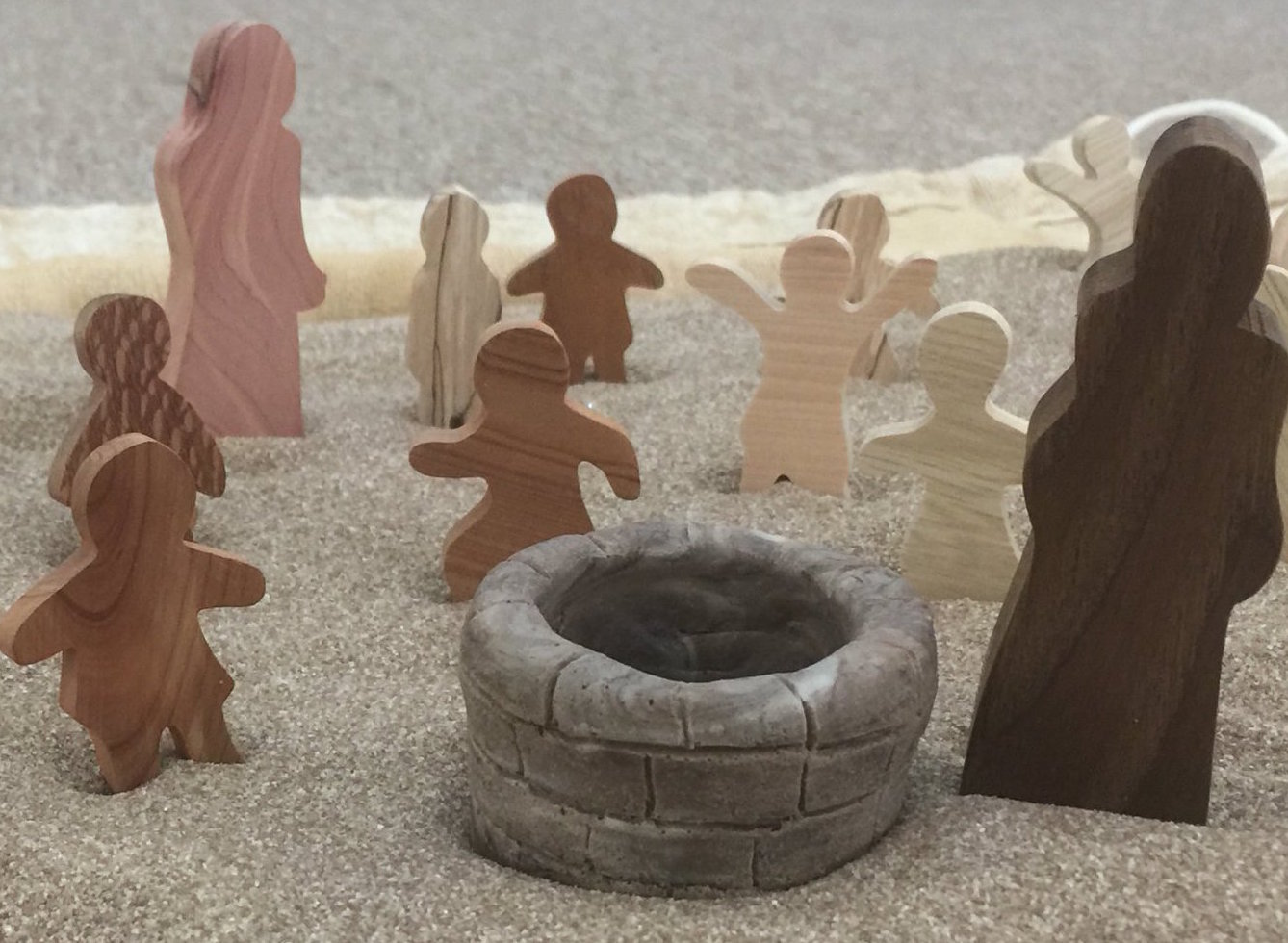Last Sunday, a handful of families in my meeting decided to try online Children’s Meeting (our First Day program for children) and worship together online. It was a last-minute decision to fire up my Zoom account and see how it worked. We posted the information on Facebook and sent out a quick email on the meeting listserv. Two hours later, when we gathered across households, we were joined by a former attender now living in Seattle, and three other PYM families who had seen the Facebook post. We came together across miles and even time zones to share songs, a reading, queries, and waiting worship. [Read more…] about Gathering Together: Support for Families & First Day Programs
Pastoral Care
Threshing Session on Membership Minutes of Appreciation
The Quaker Life Council approved the following minutes of appreciation as a sincere expression of gratitude to the Friends who facilitated the recent January 26 Threshing Session on Membership and to the monthly meeting that hosted. In addition to continuing a process of discernment about membership that has had many years of seasoning in our wider yearly meeting, this was an opportunity for intervisitation during which Friends from across our yearly meeting community could join a meeting for its worship on Sunday and take part in its community life. Intervisitation is an important part of Quaker tradition because it serves to reinforce the bonds we need in spiritual growth.
[Read more…] about Threshing Session on Membership Minutes of Appreciation
Threshing on Membership Report
View a downloadable/PDF version of the report here.
Introduction
The bulk of this report is made of minutes of exercise taken by PYM Recording Clerk, Jim Herr. The minutes review the proceedings of the day. Following the minutes of exercise, the report contains a transcription of collections of “advice to the yearly meeting” in response to several queries that participants wrote down in small groups. Find in Appendix A the advance documents that were provided ahead of the threshing session.
The Value of State of the Meeting Reports
Find a letter below from the new PYM Ministry & Care Committee of Quaker Life Council. The letter went to our community on Tuesday, January 21, 2020, describing the value of Spiritual State of the Meeting Reports as the capstone to the spiritual self assessment process, and requesting engagement from all of the communities in our yearly meeting.
Friends are invited to submit state of the meeting reports by using an online form or by forwarding written reports to Zachary T. Dutton at zdutton@pym.org.
Dear Friends,
As one of its very first tasks, the new Ministry and Care Committee of Quaker Life Council has turned attention to the Spiritual State of the Meeting Reports. Friends may wonder why. We believe that the annual custom of conducting a spiritual self-assessment deepens and enriches our spiritual community.
These reports support monthly, quarterly and ultimately the yearly meeting in moving toward shared understanding of and greater obedience to Truth. Gifts and needs can be identified and shared through this process, both internally for each meeting and throughout the yearly meeting as a whole. Concerns expressed in the spiritual state of the meeting report can evoke support from and provide guidance to other meetings. With wider awareness of needs, more appropriate allocation of resources becomes possible at all levels.
Crafting a Spiritual State of the Meeting Report is a transformative opportunity for the meeting, and can serve to draw the community together more closely. Meeting members and attenders can profit from sharing their spiritual condition and relationship with the Divine and looking together at experiences that have enriched them throughout the year. Communication of felt needs allows meeting members and attenders to express their yearnings and learnings within the meeting community and to share them with the broader fellowship of the yearly meeting.
Issuing a Spiritual State of the Meeting Report detailing the process a meeting community undertook and the insights that resulted helps the wider Quaker community. When we see what others are celebrating, mourning, and witnessing across our yearly meeting, we can be inspired and moved in our spiritual development. We benefit when we learn we are not alone in our spiritual journey.
We continue to support the process outlined in 2018 by the Quaker Life Council for developing and sharing Spiritual State of the Meeting Reports:
• All monthly meetings are encouraged to craft a Spiritual State of the Meeting Report and forward it to their respective Quarterly Meetings.
• Quarterly Meetings are encouraged to craft their own Spiritual State of the Meeting Report and to forward it along with the reports of their monthly meetings to the Ministry and Care Committee of Quaker Life Council.
• Worship groups and any other communities that are part of Philadelphia Yearly Meeting may also submit a Spiritual State of the Meeting Report, forwarding it directly to the Ministry and Care Committee of Quaker Life Council.
• If desired, monthly and quarterly meetings can use this online form to submit their state of the meeting report, either by responding to the questions, or by inserting or appending your report to the form. Friends can also email their reports directly to the PYM office, or mail hardcopies to: Ministry and Care Committee of Quaker Life Council, c/o Zachary T. Dutton, Philadelphia Yearly Meeting, 1515 Cherry St, Philadelphia, PA 19102.
• The Ministry and Care Committee of Quaker Life Council will read every State of the Meeting Report that it receives and use the reports as a basis for its assessment of the state of the spiritual and religious life of our whole yearly meeting community.
• Based on these communications, The Ministry and Care Committee of Quaker Life Council will submit its own State of the Meeting report to QLC to be presented at the July 2020 Annual Sessions and then shared widely with Friends thereafter.
Friends may desire some direction in developing a Spiritual State of the Meeting Report. It may be helpful to consider the meeting’s journey in worship, religious education, witness in the world, preparation for worship and work, pastoral care, ministry, vocal ministry and also those operational processes which have been supports or stumbling blocks throughout the year. Meeting communities may also refer to the queries in our new Faith & Practice as a guide for conducting a spiritual self-assessment and for writing the state of the meeting report.
The Ministry and Care Committee of QLC is interested in the spiritual life of your meeting. In addition to the elements outlined above, we would be interested to learn of specific issues of concern your meeting has experienced in the past year. How has God led your meeting to face and address conflict and/or misunderstandings when they have arisen? How is your meeting community thinking about the purpose and importance of membership? Has the meeting undertaken any anti-racism work, large or small, that your meeting might be exploring? What are those learnings and yearnings particular to your meeting that you would be willing to share?
The Ministry and Care Committee of QLC plans to review state of the meeting reports in late May 2020; in order that the committee may provide a summary report to QLC in time for their June meeting, please submit your report by May 15, 2020. Meetings who have not responded to this invitation by that date may also receive direct inquiries from the Ministry and Care Committee of QLC in order that the experience of as many meetings as possible can be reflected in the Spiritual State of the Yearly Meeting Report. We acknowledge that every monthly and quarterly meeting has their own way of writing and managing their State of the Meeting Reports, and ask to receive whatever commentary best reflects the current spiritual state of your meeting at this time using the suggestions in this email as guidance where you find them useful.
Jean-Marie Prestwidge Barch, Clerk
on behalf of the PYM Ministry and Care Committee of Quaker Life Council
An Invitation to Center ourselves in Trust and Love
At March Sessions we accepted the name of a consultant to assist us in the work of learning how racism moves among us. We did not achieve unity on the nature of our next step in this learning process but our work was uniquely transformative. Despite our differences, we remained in the room together. We struggled but struggled together. We listened in spite of our anxieties and fears. That shared commitment is the beginning of our shared next step.
“Cohesiveness is the prime requisite for the successful management of conflict. Members must develop a feeling of mutual trust and respect, and must come to value the group as an important means to meeting their personal needs.” … “A member who realizes that others accept and are trying to understand him or her finds it is less necessary to hold rigidly to their personal beliefs.” — Yalom
The author of this well-known text on group psychotherapy is speaking of the human need to trust and respect others as a requisite to successful meaningful communication. We must foster love and respect in our community to overcome the barriers of thoughts, anger, guilt, and shame. Only then, can we see clearly “what love can do.”
As Friends we are members of a faith community in which we accept on-going Divine revelation as a way to foster our shared spiritual health. We treasure the experience of the Divine among the corporate body. We strive to be gathered in the Spirit. From that place of centeredness we can access the trust and respect needed to experience deep listening and communion. We can begin to address the ills of these chaotic and often contentious times. We can venture into the wider world to help the returning citizen, the newly arrived immigrant, the prison inmate, the less economically blessed, the mentally ill, the physically suffering, and those persecuted for different styles of living and beliefs.
Is our Yearly Meeting centered in a love and trust strong enough to listen and respect a wide range of voices, opinions, and actions? Can we lovingly nurture a broad spectrum of actions to address, even counter the myriad inequities caused by racism?
In the past, Friends worked to combat slavery, the mistreatment of immigrants, the horrors of war, and the plight of social and economic inequality. How are these times demanding similar courageous efforts of us now?
Come to Annual Sessions. Be a part of our efforts to labor faithfully for the shared good of our yearly meeting. Be an agent of peaceful, meaningful change within our yearly meeting and in the wider world. Be Friendly. Be teachable. Be present and together.
With the hope of Peace Within & Among Us,
Christopher A. Lucca,
Presiding Clerk
Philadelphia Yearly Meeting
Workshop at Sessions: “Holding Our Families in the Light”
We are delighted to welcome Windy Cooler to Annual Sessions again this summer to present her workshop, “Holding Our Families in the Light: A Candid Assessment of Quaker Pastoral Care for Families.” Windy’s workshop will be on Friday, July 26 at 3:00pm in the Family Neighborhood Lounge of Hausdoerffer Hall.
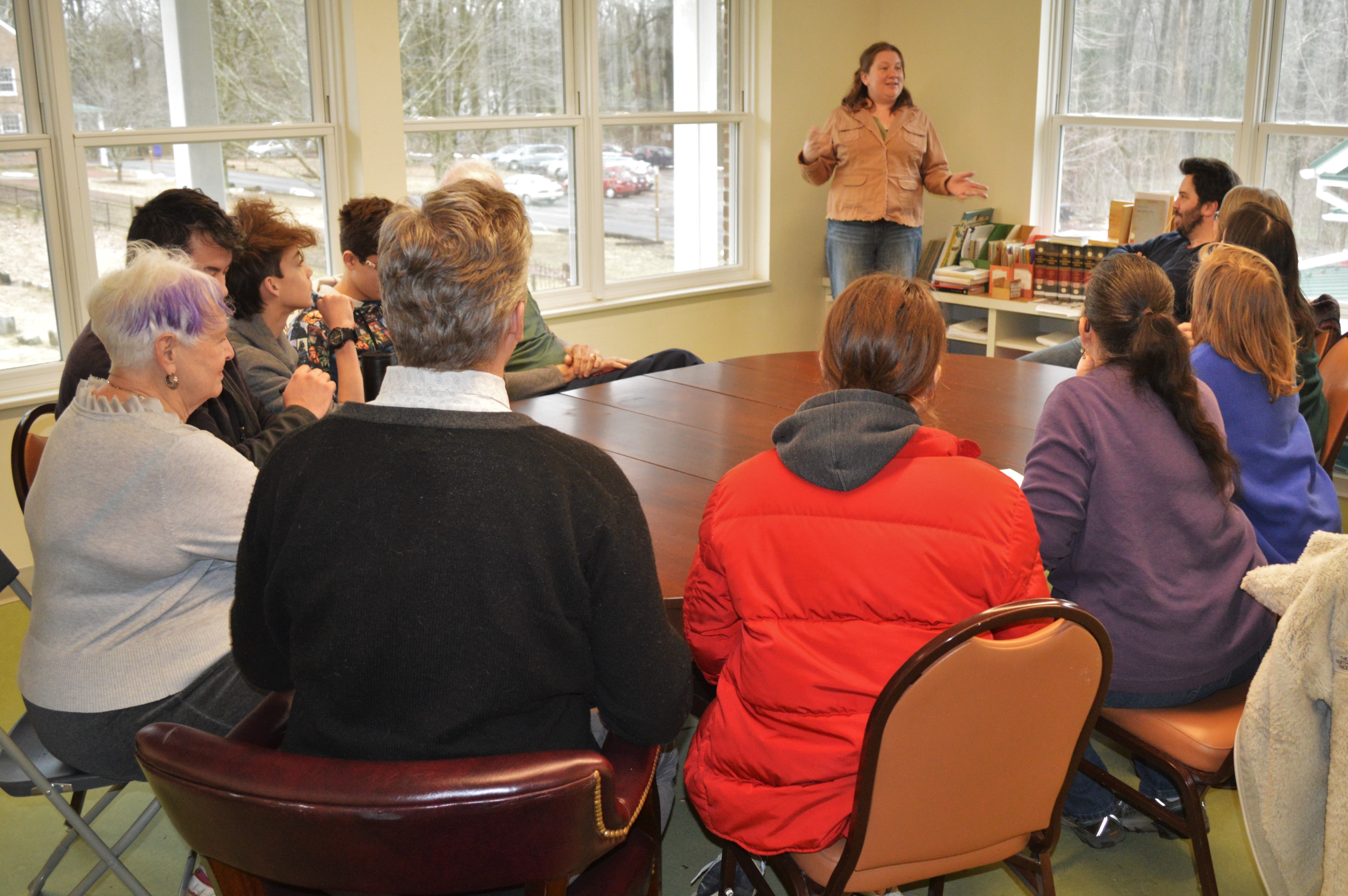
Submit Your Spiritual Self-Assessment by May
Dear Friends,
Submit your state of the meeting report here!
Greetings from Quaker Life Council of the Philadelphia Yearly Meeting. How does the Truth prosper with your meetings? If you are ready to let your spirit shine out, we are ready to receive your spiritual self-assessments! Many thanks to those who have already submitted their report for this year! Anything we receive before May, we will be sure to include in our summary report for our yearly meeting community.
To submit a report, click on the above link or forward your report to zdutton@pym.org via email. You can also mail hard copies of your report to:
Quaker Life Council
c/o Zachary T Dutton
Philadelphia Yearly Meeting
1515 Cherry St
Philadelphia, PA 19102
Last year, we began the transformed practice across our monthly meetings of performing spiritual self-assessments and sharing them with the Yearly Meeting at annual sessions. Quaker Life Council compiled a summary of these reports that was shared during the summer, and PYM staff has now posted all of these state of the meeting reports on the PYM website for all meetings to see. (Available at https://www.pym.org/category/state-of-the-meeting-report/, December 15, 2018). Read them! Rejoice in our full PYM Quaker community. You may find help for an issue that your meeting is facing in the way another meeting has handled a situation. You may find inspiration. You may find a different way that your meeting would like to do the Spiritual self-assessment this year after reading these.
Above all, we hope that you again focus on the Spirit in the process of assessing the Spirit. We encourage you to have the process be rich and energizing, rather than depleting. I have included the Faith and Practice guidelines which outlines a process you may choose to undertake. However, do not hesitate to be creative in your process and in your reports. If your meeting needs more worship, do your assessment in worship. If you need to know your hard numbers or want to write an intellectually based historical report, go for it. If your meeting sews in the Spirit, do your spiritual assessment in a quilt. Write songs or stories together if you would like, or play games and share back the rules of how to play that makes your community shine. We can receive videos, pictures, written reports, whatever you would like to share that captures your meeting’s Spirit. Make it a good and rewarding experience for your meeting, because this is done for you and for the Spirit of our whole PYM.
We, the Friends in Quaker Life Council extend our love to you and your meetings. We want our Spirits to shine together. Thank you for holding us in the light as we do our work, we are doing the same for you. Please know that we are here to help nurture your Spiritual growth. Call on us if you think we might be able to help. We are so glad that your meeting is a part of PYM and we are thankful to be serving you.
Here is the Faith and Practice Section on Conducting Spiritual Self-Assessments:
When early Friends met one another, they would ask “How does the Truth prosper with thee?” rather than asking “How are you?” They wanted to know about each other’s spiritual condition and relationship with the Divine.
Undertaking a prayerful assessment of the Friends meeting’s spiritual condition and needs and issuing a state-of-the-meeting report on a regular basis can provide a deep and meaningful opportunity that draws the community together. The meeting’s self-examination process may involve several steps. The meeting could begin with queries that address its spiritual strengths and weaknesses and also efforts to foster growth in the spiritual life of each member and of the meeting as a whole. The meeting may use the queries suggested below; it may use selections from the general queries above; it may decide to use queries from some other source; or it may formulate its own queries. The meeting may charge one of its standing committees, such as worship and ministry, or an ad-hoc group to prepare a response to the chosen queries or to oversee a process of gathering information more widely in the meeting from which to prepare a response. In the latter case, the committee may hold discussions with committee clerks, the meeting’s young Friends, or new attenders, for example; or it could conduct worship sharing by small groups within the meeting or by the meeting as a whole. The committee will prepare a draft report in a format that is most helpful to the meeting. The report is then submitted to the meeting for discussion and approval.
After approval by the monthly meeting, the meeting may agree to share its spiritual self-assessment with other meetings.
Suggested Queries for a Spiritual Self-assessment of the Meeting:
· What practices and strategies are employed by our meeting to help members and attenders of all ages prepare for worship—whether in meeting for worship or in meeting for business?
· What are the challenges to and opportunities for enhancing the worship of our meeting, and what are we doing to address these?
· What opportunities are provided to address topics important to deepening both personal spiritual journeys of members and the spiritual life of the meeting?
· What is most needed to strengthen the communal witness of the meeting to the local community and beyond?
· To what priorities does God call our meeting? How do our annual budget, our meeting’s standing committees and other aspects of the meeting’s life reflect those priorities?
Love,
Quaker Life Council (QLC)
Kate Bregman, Central Philadelphia Meeting (Philadelphia QM)
Amy Taylor Brooks, QLC Clerk, Birmingham Meeting (Concord QM)
Julia Carrigan, Mickelton Meeting (Salem QM)
Melanie Douty-Snipes, Fallsington Meeting (Bucks QM)
Gray Goodman, QLC Recording Clerk, Providence Meeting (Chester QM)
Bryn Hammarstrom, Wellsboro Meeting (Upper Susquehanna QM)
Ayesha Imani, Germantown Meeting (Philadelphia QM)
Cathleen Marion, Downingtown Meeting (Caln QM)
George Rubin, Medford Meeting (Haddonfield QM)
Anthony Stover, Germantown Meeting (Philadelphia QM)
Updating Our Threads
The Quaker Life Council has recently approved an updated set of Threads, which are ways of organizing the work and witness that all of the communities in PYM face on a regular basis. The new list is:
- Peace & Social Justice
- Ministry & Care
- Religious Education
- Outreach & Communications
- Governance & Stewardship
Crossing the Threshold: Preparing to Welcome Families
How do meeting communities prepare and engage in active invitation to families and children?
Three sets of needs. When a family walks through the door of a meeting, there are three sets of needs we should be prepared to support: the spiritual formation of their children, the spiritual journey of the adults as individual seekers drawn to Quakerism, and the family unit as they search for a spiritual community for their family to grow and contribute in. Welcoming a new family is the work of the whole meeting — youth religious education, worship and ministry, care of community, etc. Pastoral care for children begins with pastoral care for their parents or primary caregivers, and this care is best served at an intersection of multiple committees and ministries. Along with welcome and inclusion, child safety (which is really community safety) is another place for the meeting community to work together to address resources and practices. When my meeting wrote our child safety policy, the ad hoc committee included members of children’s religious education, worship and ministry, and the meeting clerk, who worked together to bring forward a policy for the whole meeting to approve as a body. There is a powerful message in the shared nature of that work.
Listen. When we welcome a family at the meetinghouse threshold, we need to be prepared to reach out and communicate about what they will find there. We also need to be ready to listen. What is a family looking for in a faith community? What do they want you to know about their children, their hopes and needs? After we listen, are we willing to create flexible structure and routines in programs for families to participate? How can we make space for Friends with a variety of gifts to participate in our spiritual community?
I had a humbling experience that lifted up the need to listen, as well as to share about Quakerism and our meeting: In a year when we had many new attenders, we decided to have a shared lunch to invite them more fully into the life and work of the meeting. We prepared a handout about committees, there was an agenda and program (and childcare and pizza for children!). The program opened with the simple request to go around the room and share what had brought each of us to our meeting? Where were we on our spiritual journey? I thought we would do introductions and then get to the “real work” of sharing about our committees and how newcomers could participate. Ninety minutes or so later, we had gotten around the circle of people present. We didn’t get to anything else we had planned. The real work of that time together was sharing, listening, and gathering as a spiritual community. The time for finding a place for people to serve would happen, but we needed to know each other better, first. Integrating families and other newcomers into the spiritual life of the meeting doesn’t need a committee. It’s just about placing primacy on the spiritual experience of worship, listening deeply to one another, and walking with one another in the travails and celebrations of life. People want to share their stories as they come to walk with us. Are we listening?
The unspoken messages of spaces. When my children were very young, I spent most of hospitality hovering over them on antique horsehair furniture where they balanced with glasses of juice and china plates of cookies. I rarely had an adult conversation of any depth, during a time when wonderful connection can happen — and when I needed it. It finally occurred to me to ask if we could add to the social room a small table and chairs for children. The result was transformative! People who are parents can get their children set up there, and then spend coffee hour talking to other adults. The other happy outcome? Children in fellowship with their peers, knowing one another in community outside of a program or worship. Spaces give unspoken, immediate clues to a new family about how prepared the meeting is to welcome them: is there a place to change a diaper? a booster seat or highchair? a small table and chairs in a fellowship space? Does the worship space have a basket of books, coloring, and other quiet things to support children be settled — and included — in worship? Does the greeter have information about child care and youth religious education programs, to hand to visitors along with announcements or information about the meeting? None of these things need to be fancy, but they send a powerful message of inclusion.
Friends may be interested in receiving:
- “The Tote Bag” PYM e-newsletter for Religious Education and Family resources.
- “Quaker Meeting and Me” from the Quaker Religious Education Collaborative. This little book in English and Spanish is wonderful to hand to a visitor or newcomer, or as a gift to young children in the meeting.
To learn more about these resources, or plan a conversation about outreach and support for families in your meeting, contact Melinda Wenner Bradley, the Youth Engagement Coordinator, at mwennerbradley@pym.org.
Epistle from “At the Well” Gathering
December 7-9, 2018, twenty-four Quaker women and genderqueer people with a call to ministry gathered at Stony Point Center, New York to explore and nurture our different ministries. Among those in attendance [from 6 yearly meetings and 19 monthly meetings] were six Friends from Philadelphia Yearly Meeting, two of whom had been on the planning committee for the gathering. “At the Well” grew out of the experience of the 2016 Quaker Women in Public Ministry gathering. The intention of the 2018 conference was to create a space to gather again with a wider circle of Quakers in public ministry, including Friends of all marginalized genders.
At the Well aspired to witness to the particularity of callings laid upon participants’ hearts by providing a venue for Spirit to knit together a blessed community of connection, support, mentoring, restoration, and passion. From the epistle, linked below: “As have the many generations of Quaker ministers that have come before us, we gathered for renewal. Coming from many places in the U.S. and Mexico, we arrived parched, excited, discouraged, weary, and hopeful.”
The time together was, as one participant described it, “A time of making vital connections, giving and receiving encouragement, looking at hard truths, and remembering that the Power of the Spirit comes through groups better than through individuals.” The At the Well epistle lifts up the words of Margaret Fell, “We are a people that follow after those things that make for peace, love, and unity,” and we challenge ourselves to truly live into embodying the full meaning of these words, rather than using them to maintain the status quo. Even as we lifted up hard truths about challenges to carrying ministry in the Religious Society of Friends, particularly the impact of racial injustice, we ask: what does love look like in times of conflict?
Read more powerful testimony from the gathering: Epistle of At the Well Gathering, December 2018


